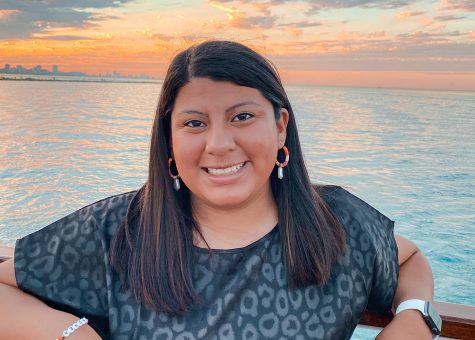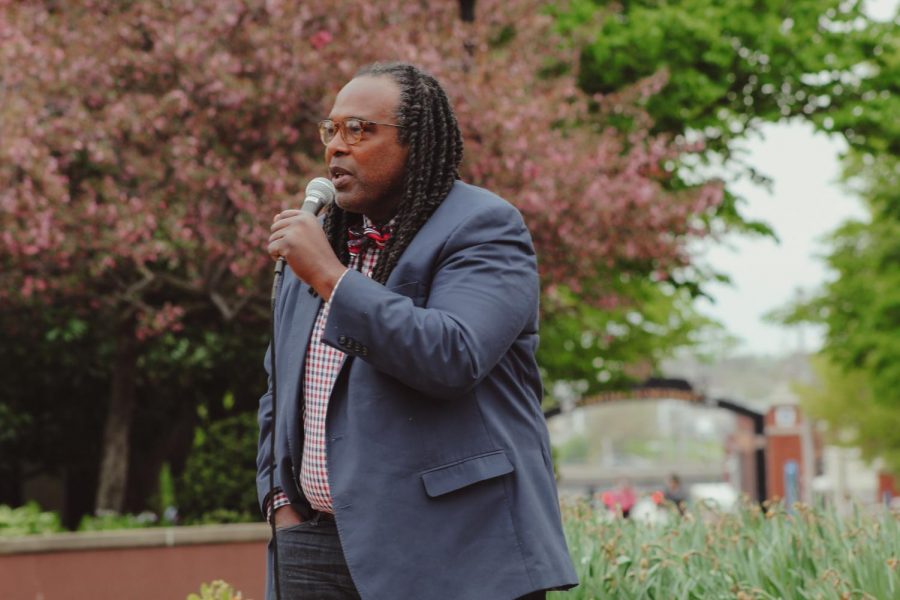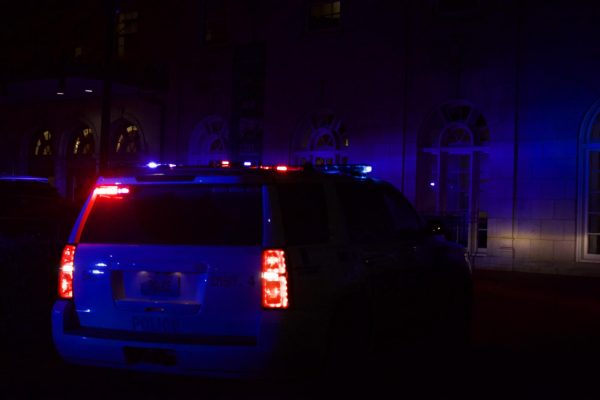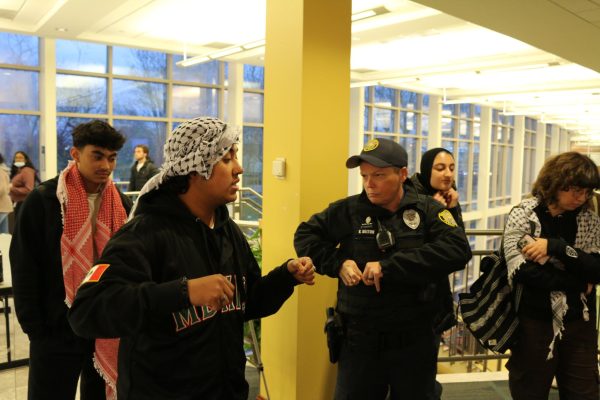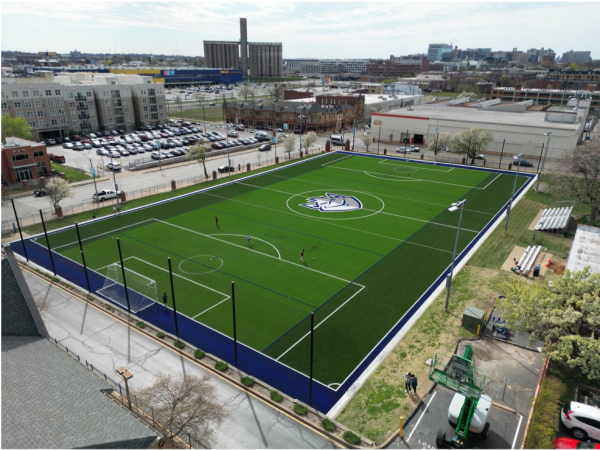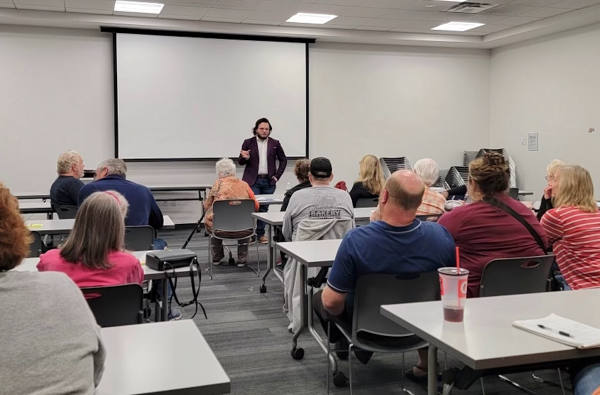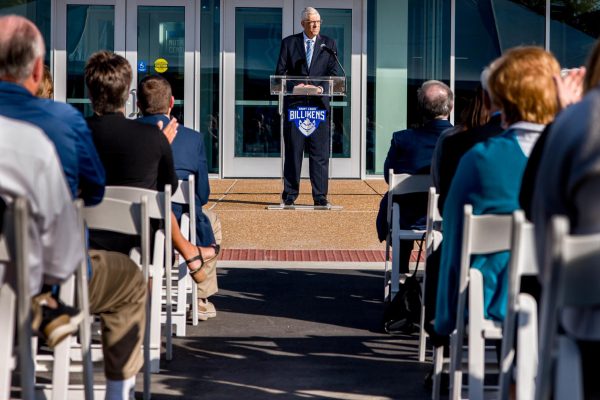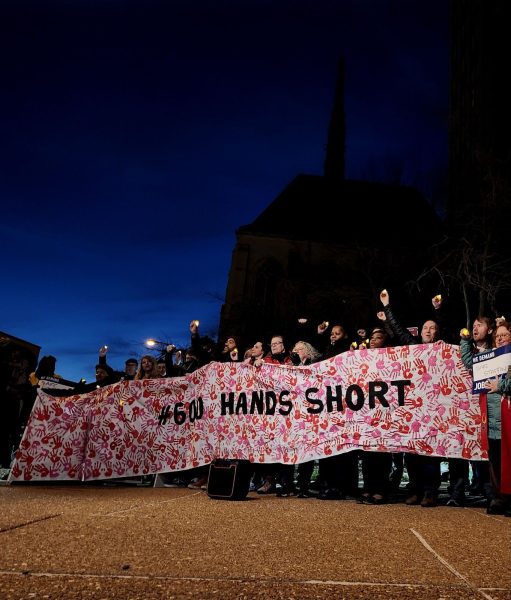Remembering Dr. Jonathan Smith
When over a thousand Black Lives Matter protesters assembled on Saint Louis University’s campus in October 2014, many of them expected to be met with tear gas and riot shields, like had happened just weeks before in nearby Ferguson, Mo.
Jonathan Smith, Ph.D came armed with cups of coffee, and, seeing as it was raining, umbrellas.
Smith, the late Vice President for Diversity and Community Engagement and Professor in African American Studies, passed on June 19, 2021 at the age of 61. He was a titan for change both on and off-campus, according to those who knew him, including SLU President Fred Pestello, Ph.D.
“He was warm, gentle and kind,” Pestello said. “He was smart and effective. He loved the work. He moved us forward.”
Smith kept a delicate balance in a difficult climate, maintaining mutual respect among activists and administrators alike. But he also held on to other lifelong passions.
As the son of a minister, Smith’s faith was very important to him. He wrote poetry. He played the piano. As an adult, Smith ran marathons. He loved literature, frequently quoting from Dr. Martin Luther King Jr., James Baldwin and W.E.B. Du Bois. Smith’s father had been arrested with Dr. King during protests in Selma, Alabama—a fact Smith took great pride in, Pestello said.
“His orientation with music and with art intensified his sense of empathy, and I think that’s why he connected so well with people and could listen to people,” Gerald Early, Ph.D, the Merle Kling Professor of Modern Letters in African and African American Studies at Washington University in St. Louis, said. Early taught Smith as he was studying for his Master of Fine Arts and later served as his doctoral advisor.
Smith’s interests manifested in the world around him. He served as the Board President of the St. Louis Black Repertory Company and as his church’s music director. He helped establish a photo gallery depicting the Ferguson protests, which are currently displayed in the Busch Student Center. And Smith, a former literature student who had taken up poetry in college, kept writing as an adult, finding inspiration in religion, family and music.
“He was devoted,” Pestello said. “His faith was a part of his blood. He was a poet at heart, and he was a true humanist. All of these things informed his worldview.”
Most of all, Smith was remembered by friends for his ability to bring people together, even in times of struggle. Now, following his death, the many communities he affected are coming together again.
“I considered him a close personal friend, as many did,” Pestello said. “His death is an enormous loss.”
The Black Rep will perform “Do I Move You?” a poetry, music and dance collection written by Smith, in the Global Citizenship Center on Oct. 13, 2021. The event comes amid a weeklong commemoration of OccupySLU, the protest Smith helped mediate in 2014.
“He had this natural, paternalistic aura about him that was so quaint and humble, yet effervescent,” Aric Hamilton, the Student Government Association’s Vice President of Diversity and Inclusion, said. “He just had this way of making everyone feel valued and loved and respected, while also still staying true to his values and the point he was trying to communicate.”
A scholarship has been established in his name, supporting area high school graduates attending SLU with a “commitment to diversity, equity and inclusion.” In addition, Pestello announced at Smith’s memorial service this summer that the amphitheater at the Joseph G. Lipic Clock Tower Plaza, where protesters had congregated in 2014, will be named after Smith in an official ceremony this fall.
“The amphitheater was a place where Jonathan often was,” Pestello said. “We were often there together: talking, praying, listening.”
While his most visible actions were in times of protest, Smith worked heavily behind the scenes to change the world as he saw fit in the name of equity. He led a push to make SLU test-optional, a switch implemented this semester. Smith worked to diversify the Cortex, a Midtown innovation district that has recently become a hub for technology start-ups and led the
University to join the Anchor Action Network, a coalition of colleges and companies promoting community investment in impoverished neighborhoods.
Smith was a founder and co-director of the Jesuits’ Slavery, History, Memory and Reconciliation Project, created to dignify African Americans who had been enslaved by the Society of Jesus and hold often emotionally fraught discussions with their descendants.
Smith died on the holiday Juneteenth, celebrating the emancipation of enslaved African Americans following the Civil War. He had worked for years to get the University to recognize the holiday, which they did for the first time in 2021, weeks ahead of a Congressional act doing the same at the federal level.
“He was one of the finest men to ever work at this University,” Pestello said. “I considered him a close personal friend, as many did. His death is an enormous loss.”
In a 2020 Juneteenth address given at the University’s clock tower, Smith reflected on the progress he had witnessed and the state of things to come.
“While I am quite proud of the work that we have done and the steps that we have made, I know and fully understand that it is not enough,” he said.
Your donation will support the student journalists of Saint Louis University. Your contribution will help us cover our annual website hosting costs.
